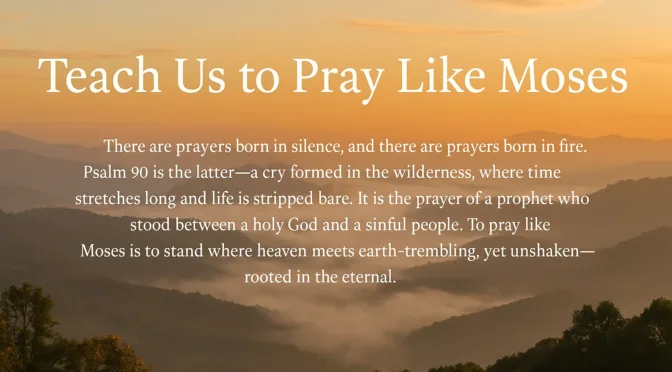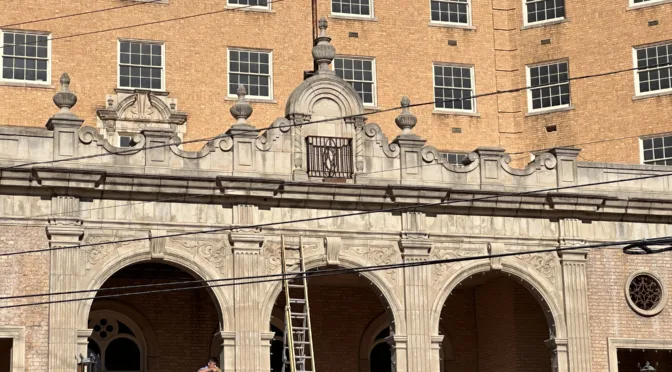A Midnight Prayer for Glory
There is a sound rising from the earth—not a song rehearsed, not a performance, not a shallow plea. It is the cry for Heaven to come down, erupting from the depths of those who have tasted the ache of delay, who have seen the ruins of the Church, who groan not for entertainment but for the living God. This cry is not born in comfort but in the night—at midnight—when darkness tries to settle over the saints and silence the watchmen.
This is the cry of a priesthood
This is the cry of a people.
This is the cry of a nation.
It is as in Joel’s day, when the prophet declared:
“Let the priests, the ministers of the Lord, weep between the porch and the altar, and let them say, ‘Have compassion and do not make Your inheritance a disgrace, a byword among the nations’” (Joel 2:17 AMP).
The Spirit stirs the hearts of a remnant. These are those who have turned aside from distractions and lesser loves. They have abandoned comfort for communion. Their prayers are not polite. Their prayers groan. They sound like Hannah before Eli—misunderstood, misread, but heard in Heaven. “Out of the abundance of my complaint and grief I have spoken until now,” she said (1 Samuel 1:16 NASB).
This is midnight prayer—like Paul and Silas in the prison cell, “about midnight they were praying and singing hymns to God, and the prisoners were listening to them” (Acts 16:25 NASB). Their backs were bleeding. Their voices echoed in the darkness. But that cry? That cry shook foundations. That cry brought an earthquake. That cry opened every door.
Beloved, we are not in peacetime. We are at war in the Spirit. The hour is midnight. Not just chronologically, but spiritually. It is the hour of oil and flame, of lamps trimmed and hearts tested. In this midnight hour, a people must rise who will cry out—not for ease, but for God. Not for the gifts of His hand, but for the beauty of His face. This is not a cry from the convenience of daylight. This is the sound of those who left their beds, left their sleep, left the comfort of routine to stand watch and contend for glory.
It is the sound of those who burn when others slumber.
It is the sound of those who pray when others scroll.
It is the sound of the wise virgins whose lamps are full when the Bridegroom comes (Matthew 25:6 NASB).
The cry for Heaven to come down is not vague. It is bridal. It is the Spirit and the Bride saying, “Come!” (Revelation 22:17 NASB). It is the longing of the Church to be washed and radiant. “Arise, shine; for your light has come, and the glory of the Lord has risen upon you” (Isaiah 60:1 NASB). The people of God come out of darkness—yes, even spiritual sleep—and are bathed in light.
She, the Bride, is not ashamed anymore.
She rises, leaning on her Beloved (Song of Songs 8:5).
She no longer hides behind walls or waits for another day.
She opens her mouth and lets the cry loose.
This cry is not passive. It is priestly. It stands in the gap like Moses: “Yet now, if You will forgive their sin, very well; but if not, please erase me from Your book which You have written!” (Exodus 32:32 NASB). It wrestles like Jacob, “I will not let You go unless You bless me” (Genesis 32:26 NASB). It presses through like the Canaanite woman, “Even the dogs feed on the crumbs which fall from their masters’ table” (Matthew 15:27 NASB).
This is not noise for noise’s sake. This is the sound of desperation married to hope. This is the sound of Ezekiel’s valley when bones begin to rattle. This is the sound of Elijah’s servant returning the seventh time—“Behold, a cloud as small as a man’s hand is coming up from the sea” (1 Kings 18:44 NASB). The sound is small at first, but it carries the weight of Heaven.
The cry for Heaven to come down is not a corporate strategy—it is a holy ache. It is not born in clever sermons or polished lights, but in the hidden closet, in the midnight hour, when flesh sleeps and the Spirit of the living God broods over the deep.
And God hears it.
He answers fire with fire.
He answers weakness with glory.
He answers longing with presence.
“Oh, that You would tear open the heavens and come down, that the mountains would quake at Your presence!” (Isaiah 64:1 NASB).
This is not the cry of those content with yesterday’s manna. It is the hunger of those who have seen that there is more of Him, and they will not rest until He comes.
And He will come.
Prayer
Father, we cry out to You in the night.
Let our voices rise like incense. Let our tears be a testimony.
Shake the heavens, rend them open, and pour Yourself upon Your people.
Make us a priesthood that weeps, a Bride that watches, a nation that returns.
Let our midnight prayers be heard in the throne room.
Let the light of Your glory shine on us, and let us walk out of the darkness into Your marvelous light.
Come, Yeshua, walk among the lampstands again.
Find us awake. Find us longing.
Let our cry for Heaven to come down reach Your heart.
In Your name, amen.









